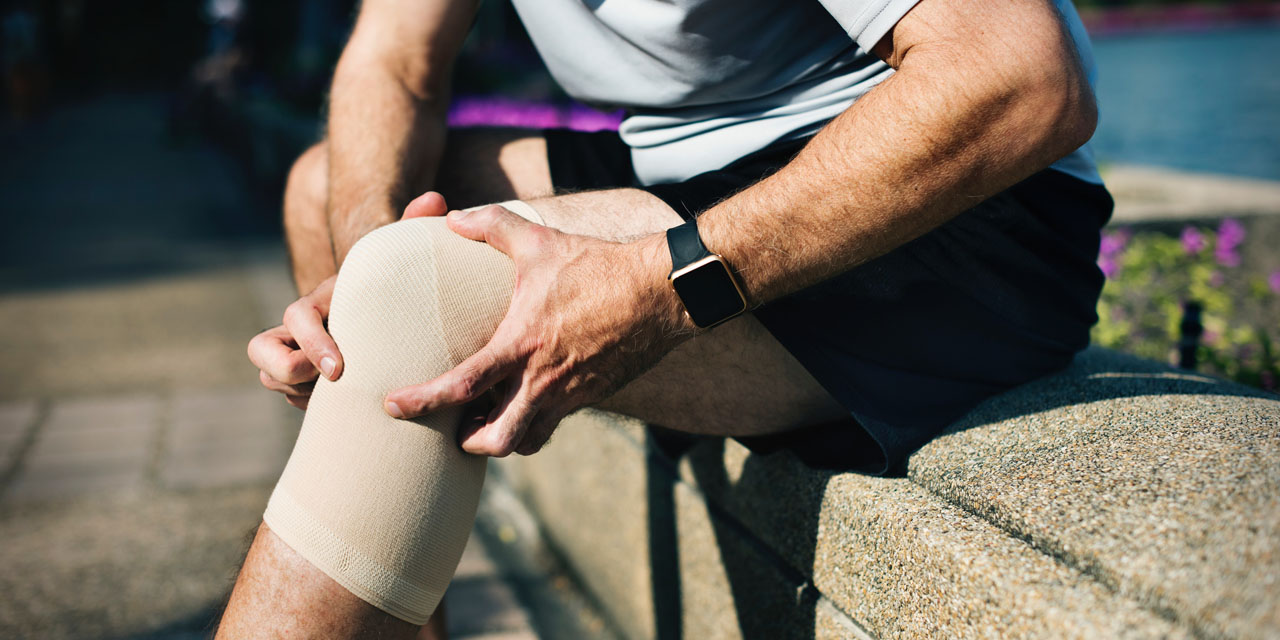Joint pain doesn’t have to be a normal part of aging. Follow these tips for healthier joints.
You have joints all over your body – your knees, hips and elbows are the ones you likely think of first. But wherever there is a connection between two bones, there’s a joint that allows your body to move. From your fingers and toes to your neck, back and shoulders, keeping your joints healthy helps you avoid pain and stiffness and allows you to keep doing the things you love to do.
5 tips that can help improve joint health
For me, it’s at the point where your quality of life has changed in some aspect. Maybe you can’t walk around the block anymore where you used to do your dog walks or something like that, and now you can’t do that. So again, it’s going to be a very wide spectrum of symptoms.
But in general, it’s pain and dysfunction. So the foot’s not working anymore, maybe you can’t lift it up anymore or push off, or you just have pain with gait. So every time you take a step, that foot’s hurting. I mean those are all reasons to come see someone and figure out what’s going on.
Maintain a healthy weight.
One of the best things you can do for your joints is to lose weight. This is especially true for weight-bearing joints such as knees and hips. Research shows that every pound of weight lost results in a 4-pound reduction in stress on the knees.
Move more.
Exercising on a regular basis keep joints healthier. Strength-training makes your muscles and ligaments stronger, which helps support your joints. Aerobic exercise gets your heart pumping and has been shown to help reduce joint swelling. And you shouldn’t only focus on formal exercise. Moving more throughout your day helps prevent your joints from getting stiff and painful.
Find An Orthopedic Specialist Near You
Call (716) 923-7153
Eat a well-rounded diet.
What you eat can affect the health of your joints, as well as your bones and muscles. Aim to get adequate amounts of protein, calcium, vitamin D, vitamin C and other important nutrients.
Know your limits.
It’s very beneficial to move as much as possible to keep joints healthier, but it’s also important to know your limits. If walking makes your knees hurt, switch to a lower-impact activity such as swimming. If you need to lift something and you think it’s too heavy, ask for help or get someone to do it for you. Modify any exercises or activities that cause joint pain.
Protect your joints.
You can’t avoid every type of strain, sprain or injury, but you can take steps to protect your joints during repetitive or high-risk activities. Wear a brace on your wrist if work activities cause wrist pain. Protect your knees and elbows with padding during activities such as skating or high-impact sports.
Joint pain doesn’t have to be a normal part of aging. Follow these tips for healthier joints.
You have joints all over your body – your knees, hips and elbows are the ones you likely think of first. But wherever there is a connection between two bones, there’s a joint that allows your body to move. From your fingers and toes to your neck, back and shoulders, keeping your joints healthy helps you avoid pain and stiffness and allows you to keep doing the things you love to do.
5 tips that can help improve joint health
Maintain a healthy weight.
One of the best things you can do for your joints is to lose weight. This is especially true for weight-bearing joints such as knees and hips. Research shows that every pound of weight lost results in a 4-pound reduction in stress on the knees.
Move more.
Exercising on a regular basis keep joints healthier. Strength-training makes your muscles and ligaments stronger, which helps support your joints. Aerobic exercise gets your heart pumping and has been shown to help reduce joint swelling. And you shouldn’t only focus on formal exercise. Moving more throughout your day helps prevent your joints from getting stiff and painful.
Find An Orthopedic Specialist Near You
Call (716) 923-7153
Find An Orthopedic Specialist Near You
Call (716) 923-7153
Eat a well-rounded diet.
What you eat can affect the health of your joints, as well as your bones and muscles. Aim to get adequate amounts of protein, calcium, vitamin D, vitamin C and other important nutrients.
Know your limits.
It’s very beneficial to move as much as possible to keep joints healthier, but it’s also important to know your limits. If walking makes your knees hurt, switch to a lower-impact activity such as swimming. If you need to lift something and you think it’s too heavy, ask for help or get someone to do it for you. Modify any exercises or activities that cause joint pain.
Protect your joints.
You can’t avoid every type of strain, sprain or injury, but you can take steps to protect your joints during repetitive or high-risk activities. Wear a brace on your wrist if work activities cause wrist pain. Protect your knees and elbows with padding during activities such as skating or high-impact sports.





